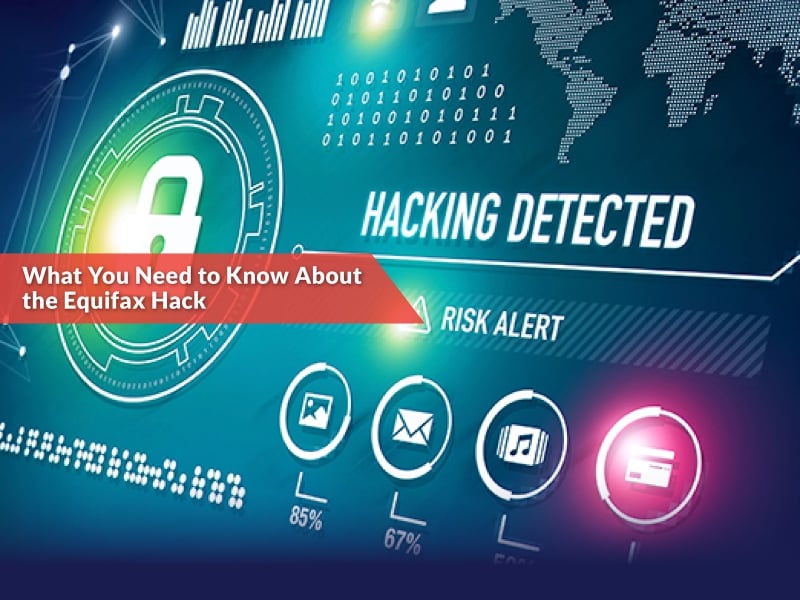Equifax – one of the three major credit report bureaus in the United States – reported on Thursday, September 14, 2017 that cybercriminals had stolen personal information of 143 million people. The information taken includes social security numbers, credit card numbers, birth dates, addresses, and driver’s license numbers. While Equifax will not contact every person affected, they will send notices via mail to those whose credit card numbers or credit dispute records were compromised, specifically.

How to Find out if You Are Affected by the Equifax Hack
To find out if you are a victim of this cybercrime, GO TO: www.equifaxsecurity2017.com.
Follow these steps:
- Click on the “Potential Impact” link.
- Then click “Check Potential Impact.”
- Enter your name and the last 6 digits of your social security number to find out if you are affected.
How Will Equifax Help?
To help protect all customers, Equifax will assist by providing free credit file monitoring and identity theft protection for one year through TrustedID Premier.
To enroll in the free service, follow the steps above for finding out if you are a victim of the hack, and after entering your information click on “Enroll.”
Note: The deadline for signing up for this free credit file monitoring and identity theft protection is November 21, 2017.
Additional Steps to Protect Your Credit
Another way to protect yourself is to place fraud alerts on your credit reports. When you place a fraud alert, any lender must contact you to verify your identity before it issues credit in your name. You can place an alert on your report for free by contacting one of the three credit agencies (they are required to notify the other two). It will be effective for 90 days and then can be renewed. The Federal Trade Commission website details the steps here: Place a Fraud Alert
To take more steps in protecting yourself, check out “5 things to do right now if you’re worried about the Equifax hack” which goes into more detail about:
- Checking your free credit reports
- Putting a fraud alert on your credit
- Keeping an eye on bank accounts and credit card statements
- Signing up for a credit monitoring or identity theft protection service
- Putting a freeze on your credit
[wd_hustle_cc id="funnel-to-4s"];
Stay on top of your credit reports to ensure your credit score remains strong. Doing so will help guarantee approval not only for VA loans, but all loans, and will also help keep your interest rate low. To find out about using your VA home loan benefits in Hawaii, contact Hawaii VA Loans at 808-792-4251.

